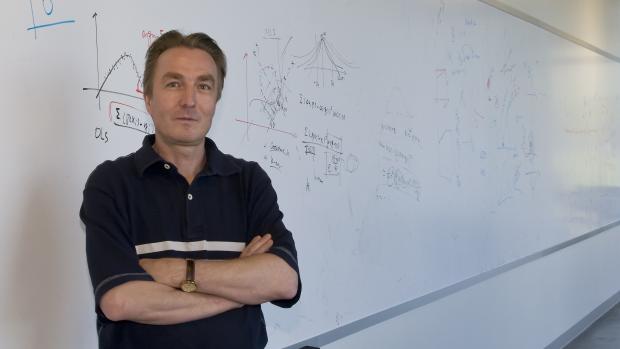Guido Gerig honored with the MICCAI Enduring Impact Award

Guido Gerig, Institute Professor of Computer Science and Engineering and Biomedical Engineering as well as a member of the Visualization Imaging and Data Analysis Center (VIDA), has been honored with the MICCAI Enduring Impact Award (EIA). The Enduring Impact Award is a prestigious annual prize awarded since 2009 to senior researchers whose work has made an enduring impact on the field of medical image computing and computer-assisted interventions. The award is granted by the Medical Image Computing and Computer-Assisted Intervention Society (MICCAI) based on a researcher's originality, successful clinical applications, publications, conferences, and education activities.
Gerig’s work has been centered on driving problems from medicine, tackled in close multidisciplinary collaboration between medicine, engineering, and statistics. His research supports a number of clinical imaging research studies with novel, innovative image analysis methodologies related to segmentation, registration, atlas building, shape analysis, and image statistics.
His research is illuminating new ways to approach research, diagnosis, and interventions for autism, Down's syndrome, eye diseases (including Glaucoma and AMD), multiple sclerosis, Huntington's disease and studies of infants at risk for mental illness, as well as general analysis of anatomical changes due to disease, therapy and recovery. His research resulted in various new image analysis methodologies for nonlinear processing, multi-scale segmentation and shape analysis, some of them first and seminal to the field.
Applications have resulted in new clinical research discoveries such as vulnerability for schizophrenia, early diagnosis of autism based on differences in brain development trajectories, and correlation of shape atrophy with risk status in Huntington's. His novel tools and methods are developed as open source software — including itkSnap, his extremely popular application that has over 750,000 downloads worldwide — and are made available to the public, including for teaching materials and hands-on training workshops, in order to transfer technology to research labs and clinics.
Over his career, Gerig has published over 375 peer-reviewed papers; has been cited almost 42,000 times; supervised 26 PhD students, 16 MS students and 4 PostDocs; taught extensively across multiple subjects; sat on the editorial and advisory boards of many notable journals; and previously served as the Department Chair of the Computer Science and Engineering Department at NYU Tandon.
Gerig has been named IEEE Fellow (class of 2019) and has also been appointed as a Fellow of the American Institute for Medical and Biological Engineering (AIMBE) in 2010. He was previously USTAR Professor of Computer Science at the University of Utah (2007-2015) establishing the Utah Center for Neuroimage Analysis (UCNIA), Taylor Grandy Professor of Computer Science and Psychiatry at the University of North Carolina at Chapel Hill (1998-2007) launching the UNC Neuro Image Research and Analysis Laboratories (NIRAL), and Assistant Professor at ETH Zurich (1993-1998). Gerig holds several awards from Utah and UNC for Excellence in Teaching.

